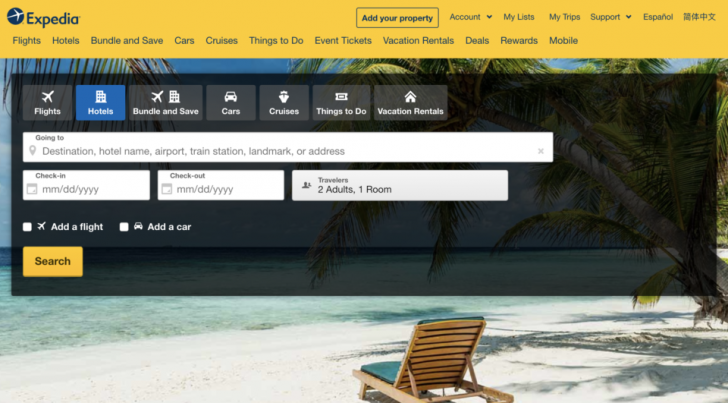Expedia Group, which owns Expedia and Hotels.com, has started using the presence of a resort fee to determine how hotels are ranked in its search results, according to Skift (HT to View from the Wing). Resort fees aren’t included in the advertised rate, which makes it difficult for Expedia to collect a commission on the full amount paid by the customer. This new strategy provides Expedia a means to continue offering competitive rates for the offending hotels in meta search engines like Kayak. But if a customer were to visit Expedia first, that same property might be harder to find.
I think the situation is a little more nuanced than suggested by View from the Wing. Skift reports that a resort fee won’t automatically cause a hotel to be ranked lower than others without a fee. And while some hotels could pay for a promoted listing that is higher than the organic results, that isn’t the only factor that determines how hotels are sorted.
Other factors include rate, quality, and popularity. Only if all these other factors were held constant would a resort fee automatically result in a lower rank. And that makes some sense if you compare Expedia’s search algorithm to Google’s. Both sites make some of their revenue through advertising, which includes sponsored results. But with the remaining organic results, things get more complicated.
Expedia wants more commission revenue, so it has an incentive to list more expensive properties first and to demote hotels that try to disguise that cost by collecting additional fees on arrival. But it also wants to make a sale, any sale, rather than see the customer leave and shop elsewhere. Customer satisfaction matters. So hotel ratings and the frequency of bookings by other customers come into play. Popular hotels that have resort fees could rank higher than unpopular hotels without them. I imagine Expedia would not have much success in Las Vegas if it moved all the off-Strip hotels to the top of the page.
Expedia may also have a range of contractural agreements with different hotels, so the commissions could be different. A hotel with a cheaper advertised rate and a separate resort fee might offer a larger commission to Expedia, so Expedia could still make more money than it does from a more transparent hotel without a resort fee.
This is still a great move from a major force in the travel industry, and I think there’s potential that it could snowball to affect even the outlier scenarios I just mentioned. As more customers, channel partners, and regulators get involved in the fight against resort fees, I hope to see them become much less common — or at the very least transparently disclosed up front in the advertised price.





